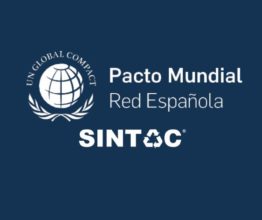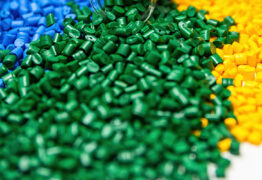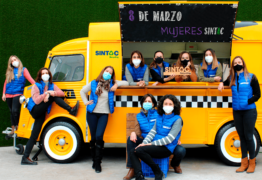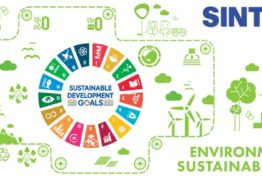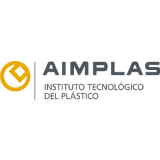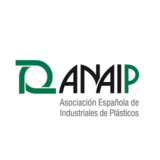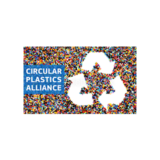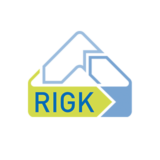Which are the communities that recycle the most in Spain?
In the fight to curb climate change, recycling has become a fundamental practice. Thanks to the selective separation of waste and its transformation into new resources, it is not only possible to save water and energy, but also to reduce pollution and the use of raw materials. This is why more and more people, institutions and companies, such as SINTAC, are committed to the environment and the 3Rs of the circular economy. Despite this, not all provinces in our country are equally aware of the issue. Some invest more time and resources than others in the preservation of the planet. Do you want to know which are the autonomous communities that recycle the most in Spain?
Top 5 communities that recycle the most in Spain
The following is a ranking of the five communities that recycle the most in Spain, based on the official reports that the autonomous communities periodically report to the Ministry for Ecological Transition, with the aim of determining whether there are improvements in the recycling protocols of each one of them, as well as to be able to draw general conclusions from the existing ones.
La Rioja
According to the latest report by the Ministry for Ecological Transition (MITECO), the autonomous community that leads the waste recovery ranking in Spain is La Rioja. It does so with a recycling rate of 66% and with measures that encourage selective separation among the population.
The incorporation of a fifth container for the management of bio-waste, the creation of an extensive network of fixed and mobile ecoparks and the implementation of environmental education campaigns are some of the actions that the local administration has implemented to improve recycling rates.
Another of the initiatives that have made La Rioja an example to follow is the creation of a website with updated and downloadable information on selective waste separation and recycling.

Catalonia
With a recycling rate of 57%, Catalonia is one of the autonomous communities with the highest recycling and recovery rates in Spain. These results are largely due to its waste management policies. By grouping containers by islands and identifying the different fractions by colour, the local administration has promoted selective separation at source and, therefore, recycling.
But these actions are not the only ones that have increased recycling rates in Catalonia. Environmental education has been a priority in this autonomous community for years. Thus, thanks to the implementation of public awareness campaigns, both young and old have been made aware of the importance of separating waste correctly and recycling.
In addition, collaboration between government and business has encouraged the creation of green jobs and the promotion of sustainable business practices.
Basque Autonomous Community
The Basque Autonomous Community is another of the autonomous communities that tops the list of the regions that recycle the most in Spain. With a recovery rate of 55%, this region is an example of commitment to the environment and to people.
As in the case of La Rioja and Catalonia, one of the keys to its success is environmental education. In addition to investing in infrastructure, the Basque Country has also invested in programmes aimed at informing and training its inhabitants about selective waste separation, recycling and care for the environment.
In addition, this autonomous community has selective collection infrastructures and recycling points accessible to the entire population. These tools facilitate the separation of waste and the cleanliness of the city. Collaboration between the regional government and local businesses has also been fundamental in improving waste management.
Valencian Community
The region ranked fourth in the ranking of the most recycling regions is Valencia. Its recovery rate is 53%, thirteen points below La Rioja, nine points below Catalonia and well above other Spanish regions.
Achieving these results in terms of recycling has involved the collaboration of the administration and local companies, but also the arrangement of containers by islands, the incorporation of door-to-door services to promote selective separation among citizens and businesses and the reinforcement of the network of eco-parks.
In parallel to these actions, the Valencian Community has invested in environmental education and has set up programmes to raise awareness among young and old alike of the importance of selectively separating waste and using the infrastructures made available by local councils to promote recycling.
In addition, Valencia was the first city to have a treatment plant capable of separating small plastic waste such as coffee capsules, caps, lids and dessert containers.

Navarra
With a recycling rate of 49%, Navarre is one of the autonomous communities that recycles the most in Spain.
One of the keys to its success is the investment in state-of-the-art waste treatment technology. Thus, through the implementation of modern recycling plants and the automation of processes, this autonomous community has improved both the treatment and recovery of waste. Moreover, thanks to its prevention policies and the promotion of home composting, Navarre has considerably reduced waste sent to landfill.
Which is the city that recycles the most in Spain?
Although we have highlighted some of the leading autonomous communities in recycling in Spain, Donosti deserves a special mention. This city has become a national benchmark in terms of recycling and waste management.
The town has implemented a highly efficient waste collection system, with coloured bins to separate different types of materials. In addition, environmental education is an integral part of city life. Numerous awareness campaigns have been carried out to involve citizens and promote sustainable practices.
Another factor that has made Donosti the city that recycles the most in Spain is the collaboration between government and local businesses. The city has fostered the circular economy, promoting the reuse and recycling of materials. In addition, innovative projects have been developed to turn waste into resources, such as the transformation of organic waste into high quality compost.
